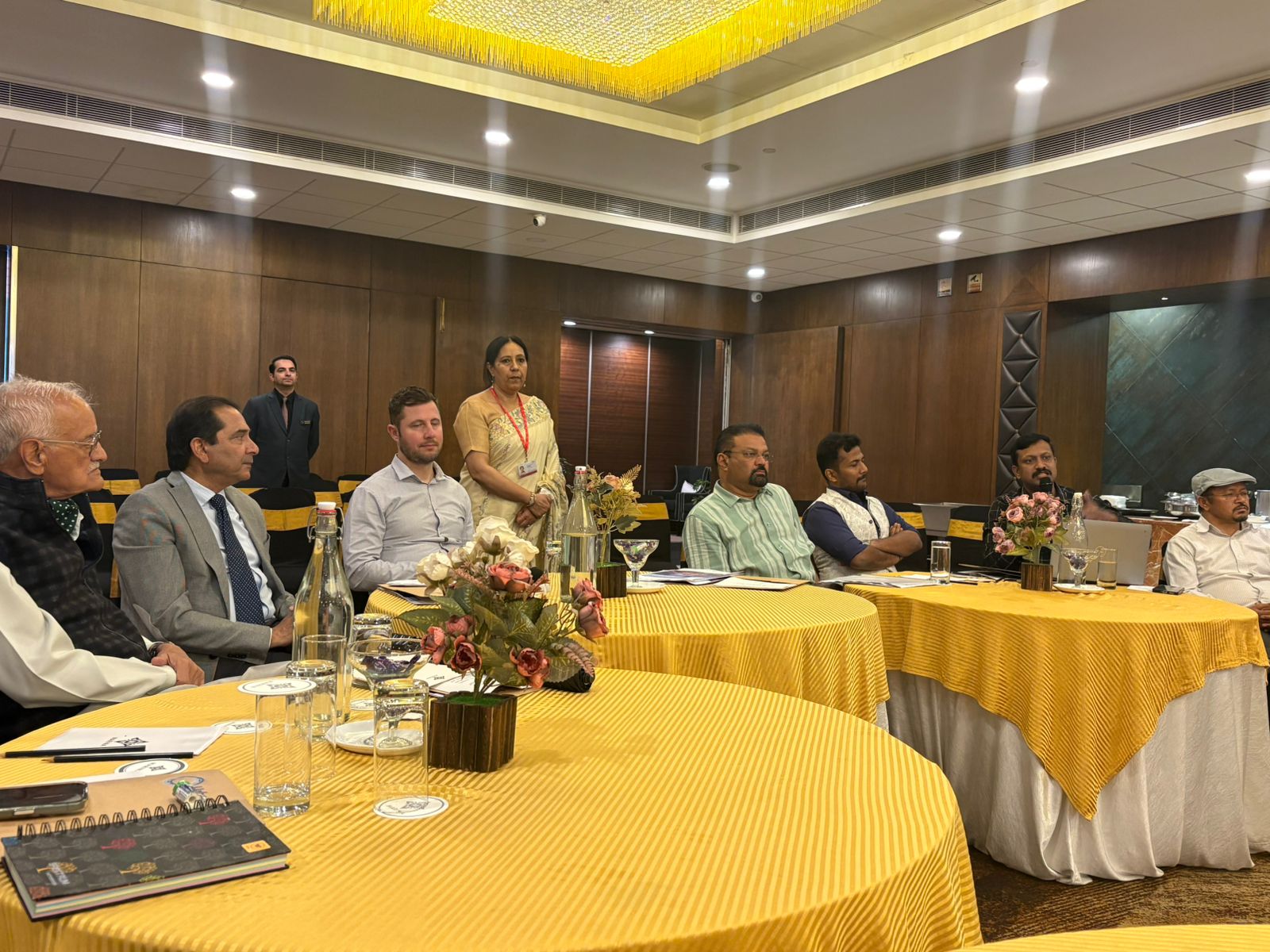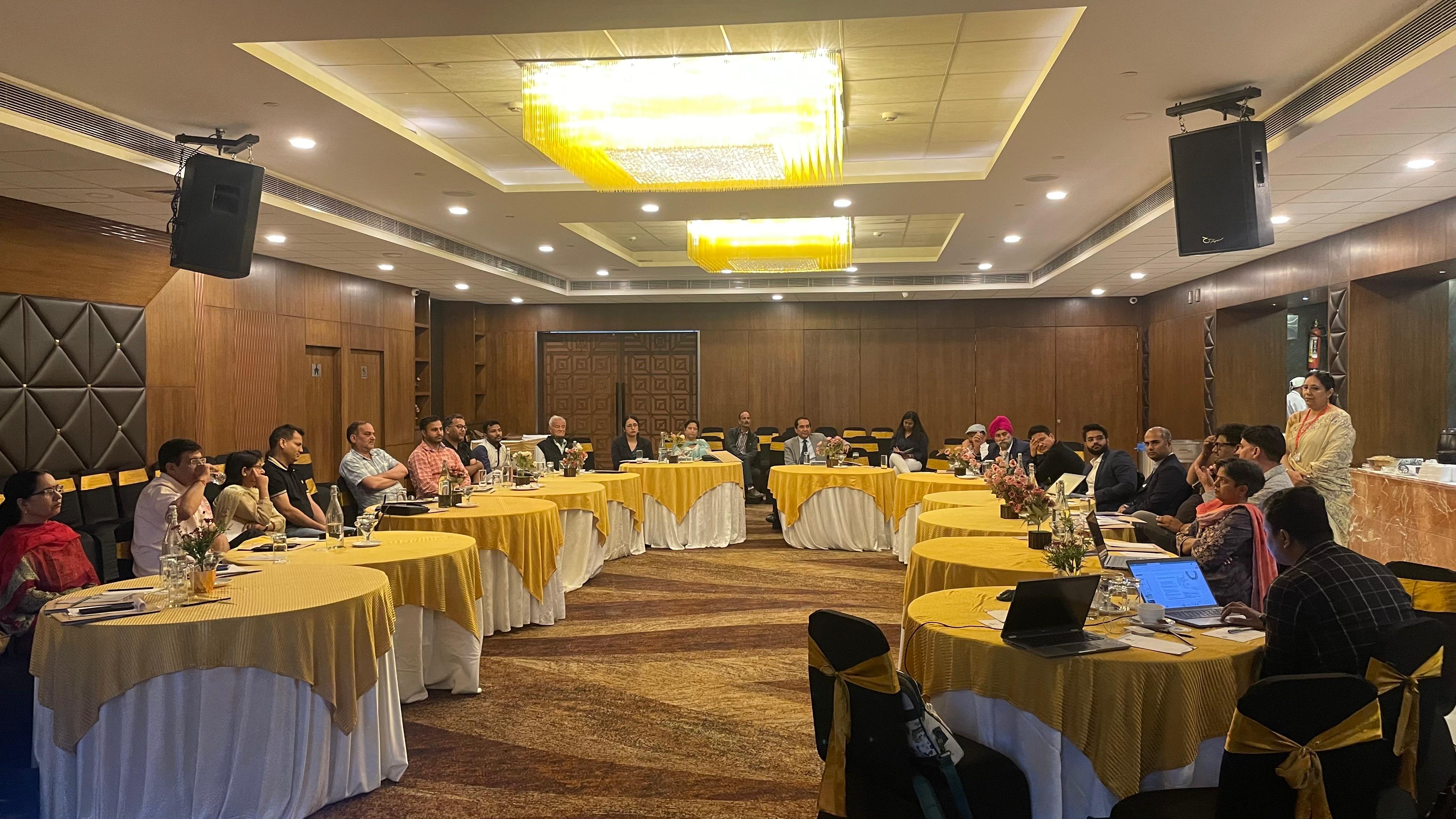Urban-Act: Integrated Urban Climate Action for Low-Carbon & Resilient Cities
April-June | 2025Global
Mitigation of Climate Change
Link To Project: Click Here
Urban-Act Advances Climate Action and Sustainable Waste Management Through Strategic Partnerships and Capacity Building
Project Updates
As part of the UrbanAct project, state-level dialogues on Climate-Sensitive Urban Planning were held in Goa and Himachal Pradesh to advance climate integration in planning, supported by GIZ and TERI. The dialogues focused on governance, participation, risk, and finance. A follow-up Capacity Building Workshop in Goa gathered over 60 participants for expert sessions on spatial planning, nature-based solutions, and climate risk tools like the Decode NBS Tool.
State-Level Policy Dialogues on Mainstreaming Climate-Sensitive Urban Planning under UrbanAct in Himachal Pradesh and Goa
As part of the UrbanAct project, two state-level policy dialogues on Mainstreaming Climate-Sensitive Urban Planning were successfully held in Goa and Himachal Pradesh. Supported by GIZ and organised in collaboration with The Energy and Resources Institute (TERI), these dialogues brought together key stakeholders to advance the integration of climate action into urban and spatial planning processes at the state level.
In Goa, the dialogue was held on 25 April 2025 and convened over 45 senior government officials, urban planners, practitioners, and academic experts in Panaji. Prominent speakers included Shri Sanjit Rodrigues (IAS), MD and CEO of Smart City Goa; Dr Pradip V. Sarmokadam, Member Secretary, Goa State Biodiversity Board; and Ms Vertika Dagur, Chief Town Planner, Goa. Discussions were organised around four thematic sessions — Climate-Sensitive Approaches in Urban Spatial Planning; Institutional Mechanisms and Governance; Community Participation; and Finance and Investment for Climate-Responsive Urban Development. The deliberations emphasised the need for cross-sectoral coordination, embedding climate risk assessments into planning, strengthening local participatory processes, and mobilising sustainable finance for climate action.
Similarly, in Himachal Pradesh, the state-level dialogue was held on 18 June 2025 in Shimla. The event gathered senior state officials, urban planning experts, and technical institutions to explore pathways for integrating climate considerations into the state’s rapidly evolving urban landscape. Discussions centred on enhancing institutional frameworks, mainstreaming vulnerability and risk assessments into planning processes, fostering community engagement, and leveraging financing opportunities for resilient urban development.
Both dialogues mark significant milestones in the ongoing efforts under Urban-Act to support Indian states in aligning their urban development strategies with national policies such as the Climate Change Mission and international commitments under the Paris Agreement. The outcomes will contribute to strengthening institutional capacities, improving governance frameworks, and enabling more adaptive and resilient urban growth trajectories in Goa and Himachal Pradesh.
Capacity Building Workshop on Climate-Sensitive Spatial Planning
As part of the UrbanAct project, a state-level Capacity Building Workshop on Climate-Sensitive Spatial Planning was successfully conducted on 11 June 2025 in Panaji, Goa. The workshop brought together over 60 participants, including officials from Urban Local Bodies (ULBs), planners from the Town and Country Planning Department (TCPD), members of the Institute of Town Planners, India (ITPI), and representatives from the Environment and Climate Change Cell.
This workshop was developed as a continuation of the state-level Policy Dialogue previously held in Goa. The dialogue had brought to the forefront several structural and institutional gaps in integrating climate resilience into spatial planning. Recognising this need, the workshop was initiated to bridge these gaps with action-oriented approach.
The workshop was participated by senior officials including by Mr. Sebastian Markart, Project Director, UrbanAct India; Mr. R. K. Pandita, Chief Town Planner (Land Use), TCPD; Dr. Pradip V. Sarmokadam, Member Secretary, Goa State Biodiversity Board; and Mr. Morad Ahmed, Former Chief Town Planner, Goa. Their insights underscored the growing relevance of climate-integrated planning in shaping Goa’s urban future.
The day-long programme featured expert-led technical sessions conducted by institutions such as the National Institute of Urban Affairs (NIUA), University of Dortmund, University of Stuttgart, School of Planning and Architecture (SPA) Bhopal, and The Energy and Resources Institute (TERI). Topics covered included international case studies on climate action in urban planning, integration of nature-based solutions (NBS) into city development, climate risk assessments, Goa’s Spatial Planning Practices & Recommendations, and a live demonstration of the Decode NBS Tool. A game-based learning module helped participants explore the localisation of climate action within the Goan context.
The workshop served as a critical step in building institutional capacity for climate-sensitive planning and advancing UrbanAct’s objective of supporting cities in their low-carbon and climate-resilient transformation.
Copyright © 2025 All rights reserved






